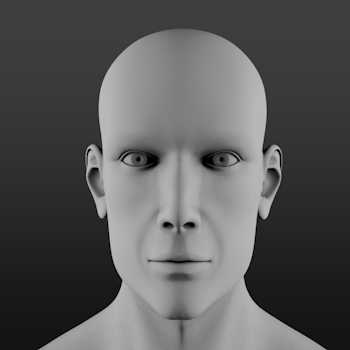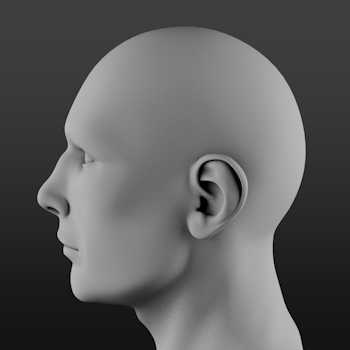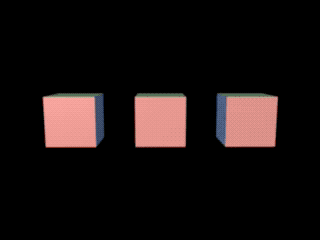Orientation
Orientation describes facing such as front, back, top, and bottom. Orientation requires recognition of a figure in order to be described. A portrait with the subject looking directly into the camera would have frontal orientation while a portrait looking at the top of the subject’s head would have top orientation.
Alternate terms: attitude
Frontal Orientation:

Side Orientation (specifically, Left):


In this example, the square to the right becomes the primary figure within the sequence because of motion. The motion is a change of orientation. Orientation requires a sense of top/bottom, front/back, or left/right. A series of three squares would not illustrate orientation because there is no distinct top or bottom, front or back, left or right. The faces of the cube are colored differently to provide some sense of facing – red is front-back, green is top-bottom, and blue is left-right. Once again, if you stop the movie at the beginning or end, there is no clear primary figure due to all three squares being fundamentally identical.